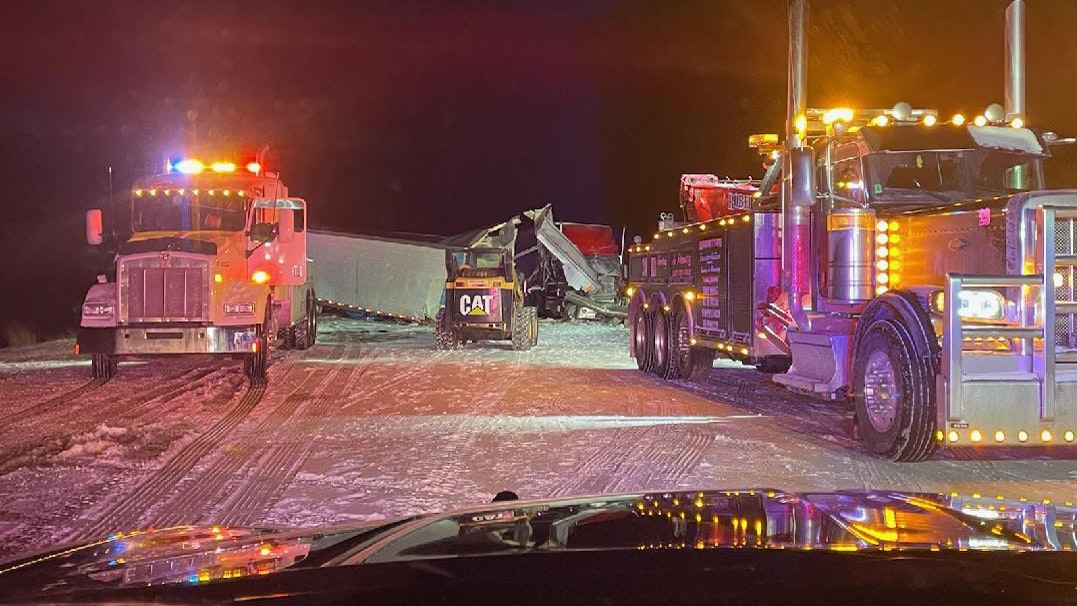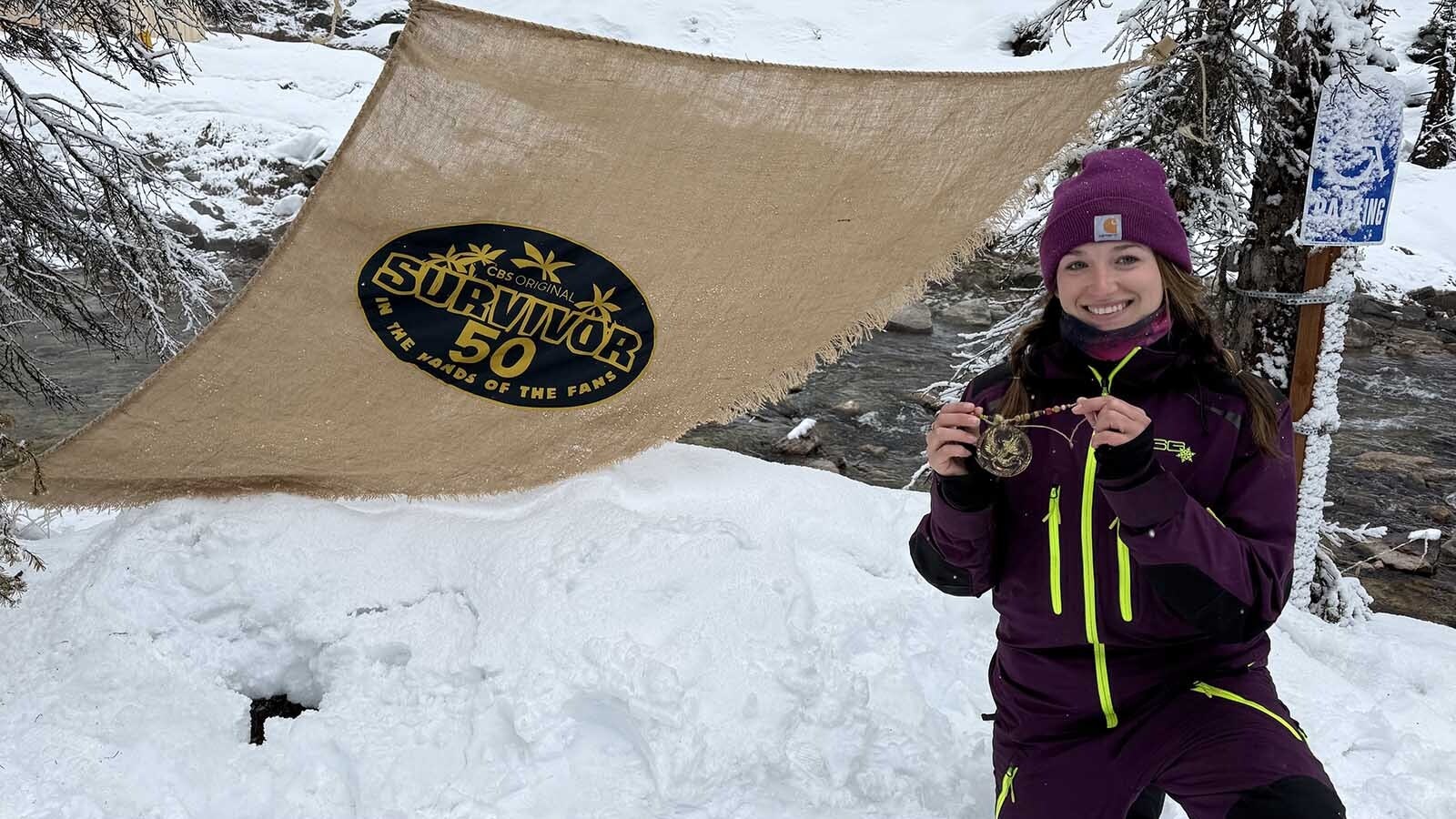Carol Trusheim Waters learned some of life’s most important lessons while she was a first grader in Gebo, Wyoming, now a ghost mining town located 11 miles north of Thermopolis in Hot Springs County.
Mrs. Farr was her first grade teacher, Waters recalled, and the only teacher she remembers from Gebo. Her parents would move to Thermopolis after the mines closed the next year, putting her in a new school for second grade in 1938.
But Gebo’s Mrs. Farr remains one of her all-time favorite teachers because of her no-nonsense, common-sense attitude.
In Gebo, teachers faced an unusual and difficult situation.
“There were so many different languages spoken there,” Waters said. “There were Polish students, Italians, the Czechs — so many different nationalities. I was German.”
There were 16 different nationalities in all. Naturally, schoolchildren felt more comfortable in cliques where their own nationality’s language was spoken. But that was hampering their ability to build common ground and bonds of friendship across nationalities.
And it was a nightmare from a teaching perspective. Imagine being an English-speaking teacher trying to teach the three R’s — reading, writing and arithmetic — to a class where English is the only language not really spoken.
“I’ll never forget what she told us,” Waters told Cowboy State Daily. “She said, ‘We are America. You are Americans now, and you speak English. You have until Christmas to learn English, only to be spoken at school.’”
Mission Impossible
This seemed like an almost impossible task to Waters. Christmas was just three months away, and English was so difficult, full of arbitrary rules. Why couldn’t it be a sensible language like German?
But the teacher had said everyone must speak English by Christmas, and Waters knew Mrs. Farr wasn’t going to accept any excuses. Plus, she liked Mrs. Farr and wanted her teacher to be proud of her.
So at home, she buckled down to learn her English.
Soon she realized she wasn’t alone at all. Lots of people in Gebo were doing their best to learn English as fast as possible, including the French woman who came to stay with her family.
“Mom agreed to help her learn English, if she would teach me ballet,” Waters said.
That you-help-me-and-I’ll-help-you deal was a common theme in Gebo.
“That’s just the way it was at the time,” she said. “Everyone helped each other to get by the best they could.”
Unfortunately, the French woman died before Waters got to perform on stage and demonstrate all the ballet she’d learned.
“I learned a lot of English and only a little ballet,” she said.
Ultimately, though, Waters was glad she’d learned English. It helped her navigate in a new country.
“And I had some clout,” she said.

A Special Gift From Gebo
One of the reasons Waters came back to the area for Wyoming Historical Society’s 70th annual History Trek, which included a tour to Gebo, is because she had a special gift for the Hot Springs County Museum & Cultural Center.
The gift is a hand-crafted piece of furniture her father, John Henry “Umpah” Trusheim, made for Waters and her sister Betty Jean.
He took some old shipping crates to fashion a child-size cupboard so the two girls could use it when they were playing house. The cupboard may have been tiny, but it is clear that Waters’ “Umpah” put a lot of thought into it.
There were tiny hooks for coffee cups, as well as a slide-out cutting board, making it a pretty fun and realistic piece. They had dishes and other things to go in the cupboard, and it was fun to pull the drawers out to see the shipping labels.
Carol has kept the little kitchen cupboard all of these years, using it for potted plants and other gardening tools on her porch.
The yellow paint has faded, but it always reminds her of all the happy times she spent in Gebo with her family in what she says was one of the most interesting places in the world at the time.
Now she’s giving the homespun furniture piece to the museum, which has an entire section devoted to Gebo. The cupboard could find a home there, or it might be used in the gift store as a display shelf.
Gebo Was The Place To Be
Gebo was established in 1907 near the mining camps of Crosby and Kirby. The town took its name from Samuel Wilford Gebo, who owned Owl Creek Coal Co. and established the first mine in the area.
At its height, more than 2,000 people lived in the mining camp — more than in Thermopolis — making it the largest community in Hot Springs County.
Gebo was never incorporated and not much of it is left these days. The town was bulldozed in 1971. The only things left are a few buildings and the children’s cemetery.
But Waters has lots of memories of the town where she first went to school, and the cupboard her father made is just one example of how everyone there learned to make do with what they had.
“We’d take a white potato and put mud all over it,” she said. “Then we’d toss them into the fire to cook.”
While the children waited for their potatoes to roast, they would play games to pass the time.
“After that, we’d take our potatoes out and brush all the mud off of them,” she said. “And we would eat them just like that. We didn’t add anything to them.”
No salt, no sour cream, no butter.
“They were actually really good that way,” she said.
You Couldn’t Run Away From Home In Gebo
Of course, everything wasn’t always sunshine and roses in Gebo. Sometimes, even good children get mad at good parents.
Waters recalled how she and a young man named David Pisto ran away from home after their mother discovered they were trying to light a couple of candles inside a tent they’d made from sheets hung over the clothesline.
“Oh no you don’t!” Waters’ mother said, abruptly taking their matches and candles away.
It had been someone’s birthday, and Waters and Pisto were so mad about the candles being taken away that they made a pact to run away.
Waters dumped all her dolls and some of her clothes into a baby buggy. Pisto put some of his toys and his clothes into a wagon.
Off the two went, headed straight for Kirby, which was 2 miles away.
Gebo was a place where people looked out for each other. And that included two small children headed for Kirby on foot. That meant it didn’t take Waters’ dad very long to find the two children.
“He twisted my ear and made us walk all the way back home,” Waters said.
She was mad then, but she can smile about the memory now. She knows now that running away from home and the family that loves you is never really going to solve anything. And she’s so glad for her parents and all the time she did get to spend in Gebo — even if those years didn’t last long for Waters.
“When they closed the mine, families moved away to Thermopolis,” she said. “I started second grade in Thermopolis.”
Her father, however, was one of three partners who tried to start up a new mining company, the Roncco Coal Co., to keep Gebo going after Owl Creek shut down. His other two partners were Bert Cavalli and Leo Roncco Sr.
Waters is proud of all that history, even if there was no fighting the winds of change that were sweeping over Gebo, and the Roncco Mine ultimately closed after federal regulators insisted on about a quarter million in safety improvements.
“Gebo was a great and interesting place to grow up and be a kid,” she said. “And I still remember all of those wonderful days, and all of those wonderful people.”
Renée Jean can be reached at renee@cowboystatedaily.com.





